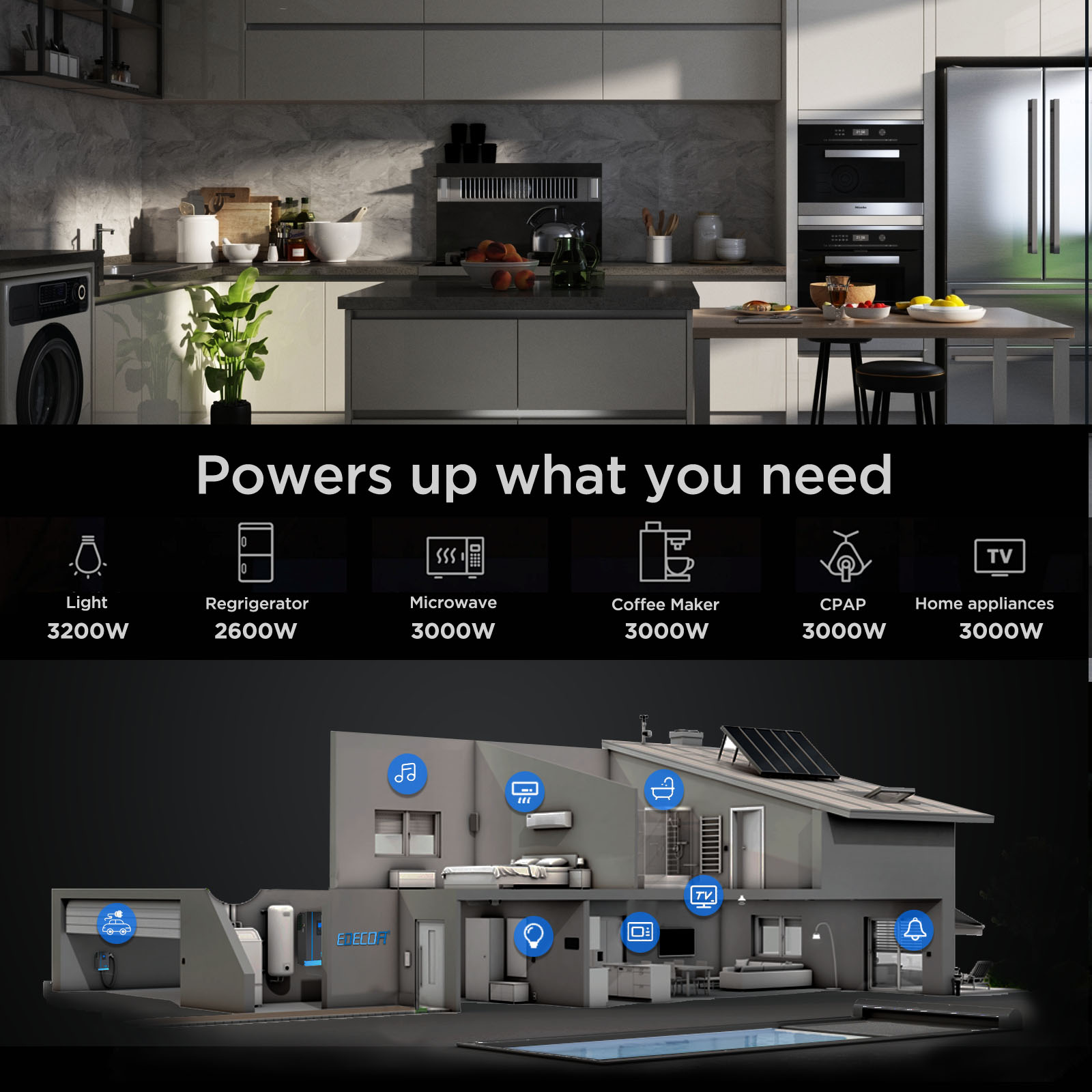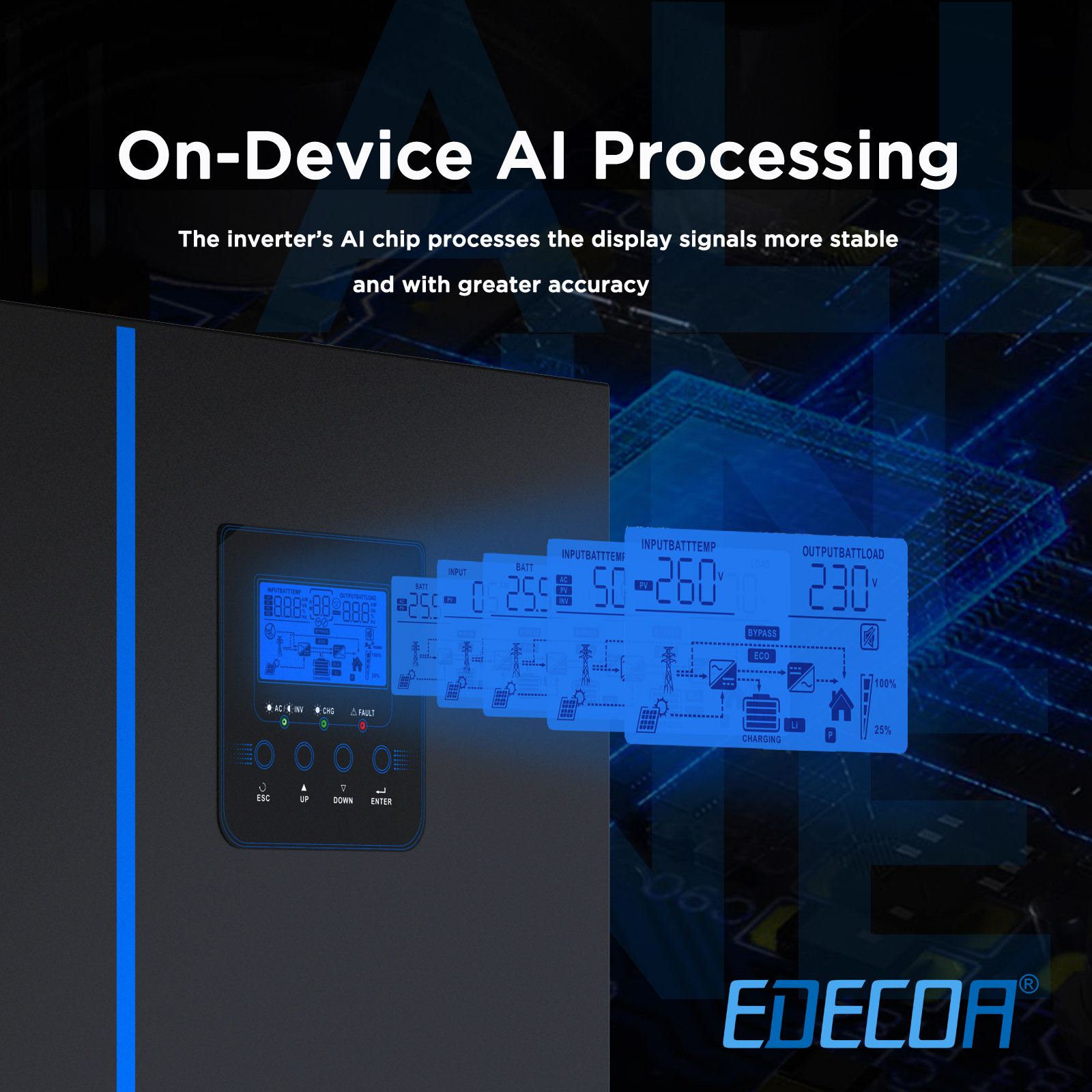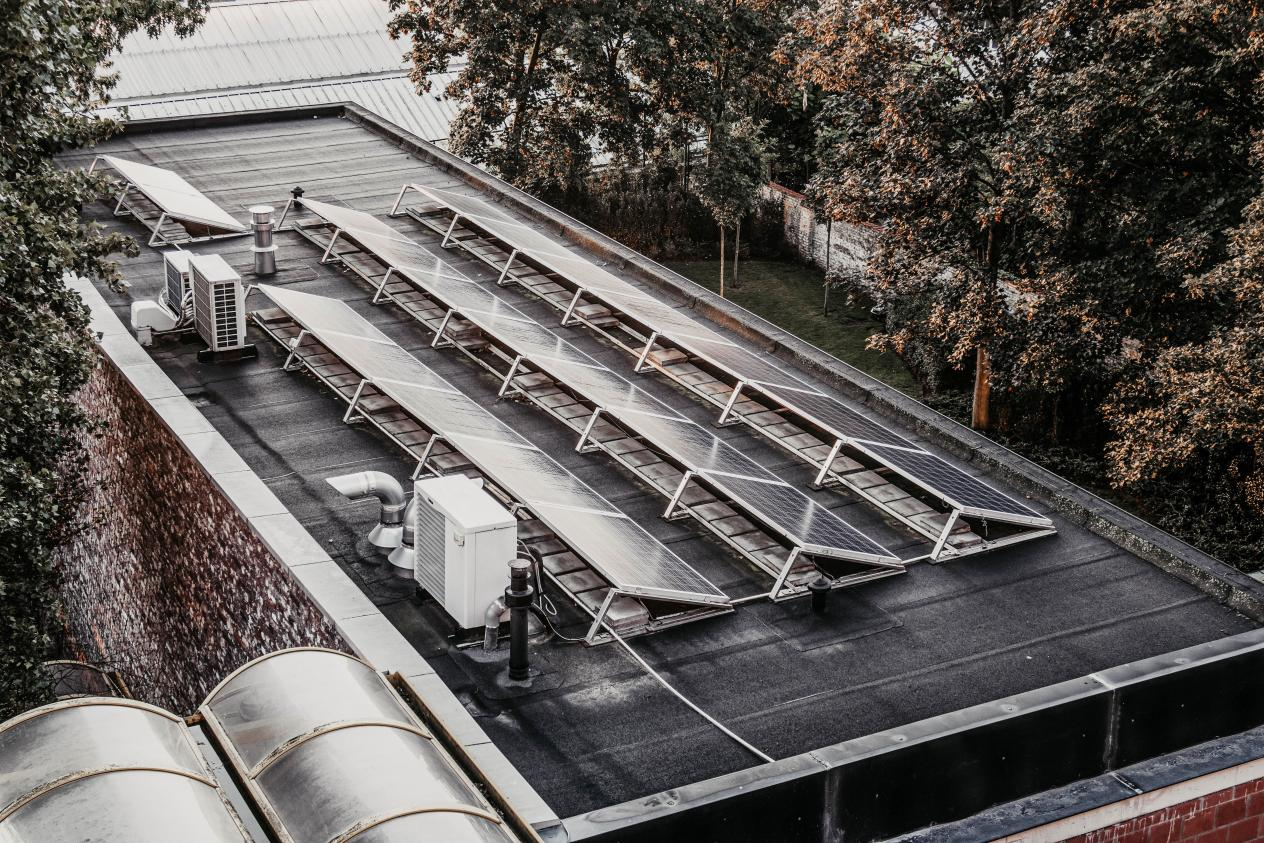EDECOA
Powes up all you need
Have you ever been confused about understanding hybrid inverters better?

What is a hybrid inverter?
The hybrid inverter is a device that integrates multiple energy sources. It can combine different types of energy, including solar power, batteries, AC power, and grid power. Its main function is to convert DC power into AC power to meet your various electricity needs. Unlike traditional inverters, the uniqueness of hybrid inverters lies in their ability to accept multiple energy inputs simultaneously and intelligently manage and allocate them according to actual demand.
Why choose a hybrid inverter?
Energy Flexibility: A hybrid inverter provides you with more flexibility in energy choices. You can harness solar energy by using solar panels and convert it into electricity to power your home or commercial facility. Additionally, a hybrid inverter can be connected to the grid to access stable AC power. Furthermore, it can be paired with batteries to store excess electricity for later use.
Energy Independence: A hybrid inverter enables you to achieve energy independence. The combination of a hybrid inverter, solar panels, and batteries allows you to have backup power. During power outages or emergencies, you can rely on the stored energy in the batteries to provide essential electricity, ensuring the continuity of your daily life and work.
Energy Efficiency and Environmental Friendliness: The use of a hybrid inverter contributes to energy efficiency and environmental protection. By harnessing solar energy and utilizing battery storage systems, you can reduce reliance on the traditional power grid, lower carbon emissions, and decrease energy consumption. This not only benefits the environment but also helps you save on energy costs.

How many solar panels do I need to connect?
To determine the number of solar panels you need, you should check the relevant parameters of the solar panels, such as the voltage at maximum power (Vmp), open-circuit voltage (Voc), and maximum working current (Imp).
For example, if you have a 24V 3000W hybrid inverter and each solar panel has Vmp of 34V, Voc of 42V and Imp is 10.83A,you can proceed with the following calculations:
Specifications of the hybrid inverter are known:
- Solar panel voltage range (Vmp): 90-430V
- Maximum open-circuit voltage (Voc): 450V
- Maximum working current (Imp): 12A
To ensure compatibility with the hybrid inverter:
- Total Vmp: 34V*3 = 102V(Within the voltage range of this inverter solar panel)
- Total Voc: 42V * 3 = 126V (which is less than 450V, the maximum Voc supported by the inverter)
- Total Imp: 10.83A (which is less than 12A, the maximum Imp supported by the inverter)
Based on these calculations, you would need to connect at least 3 solar panels in series to use with the hybrid inverter.

Two common types of solar charge controllers in hybrid inverters are MPPT and PWM.
MPPT (Maximum Power Point Tracking) solar charge controller is currently the more advanced charging method. It continuously tracks the maximum power point of the solar panels, ensuring maximum power output at all times. It's like a super intelligent navigation system that always guides you towards the most abundant energy path.
PWM (Pulse Width Modulation) controller is a more economical technology. It adjusts the input voltage to match the battery voltage for maximizing charging efficiency. However, if the solar panel voltage is significantly higher than the battery voltage, PWM controller may not fully utilize all the energy.
In other words, if MPPT is an adventurous seeker of maximum efficiency, PWM is like a thrifty homemaker, always maintaining stable and economical operation.
In summary, MPPT and PWM have their own advantages. MPPT provides higher efficiency and flexibility, while PWM is more cost-effective and easier to use. The choice between the two depends entirely on your needs and budget.
Post time: 10-14-2023